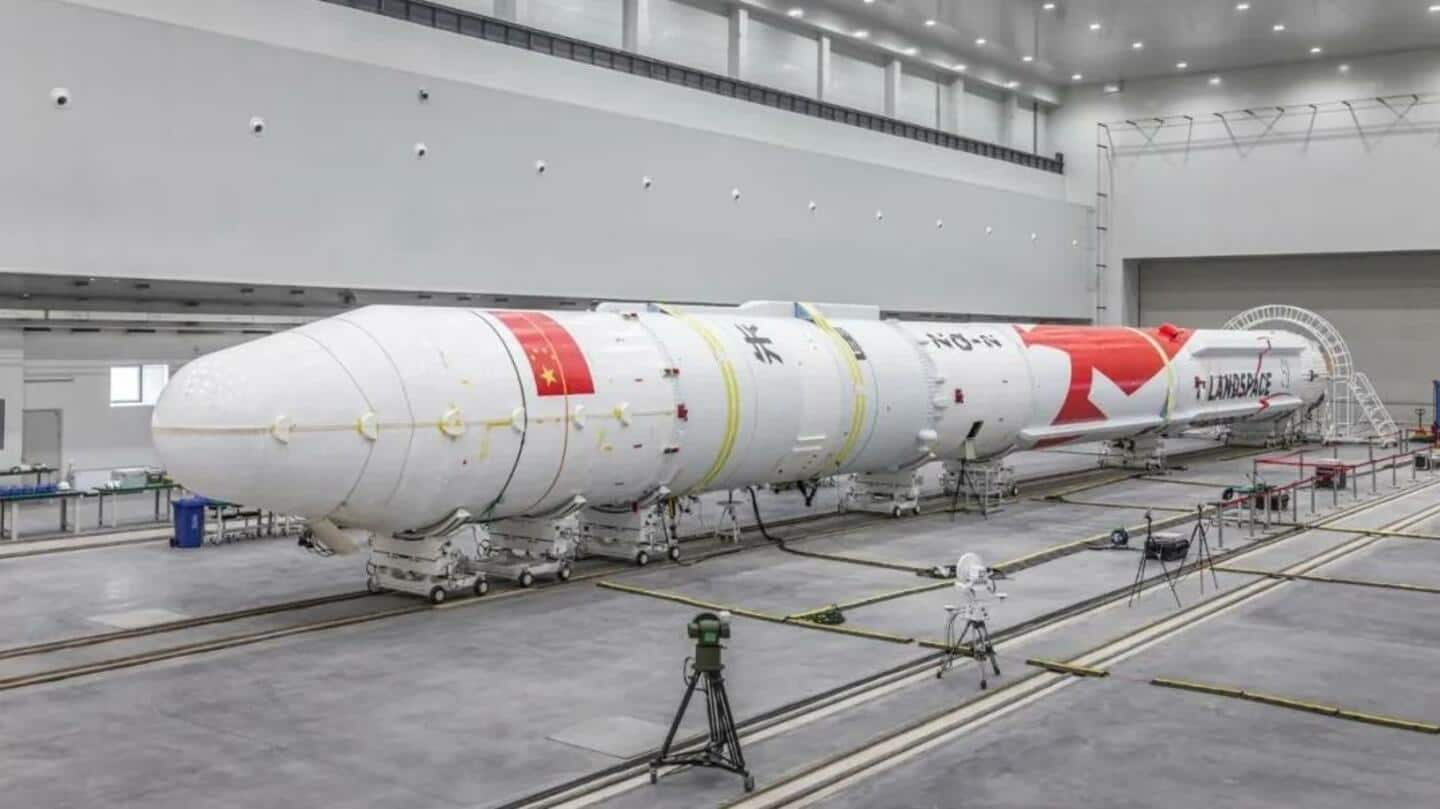
China's attempt to launch the world's first methane-fueled rocket fails
What's the story
China has been unsuccessful in the launch of Zhuque-2, the world's first methane-fueled rocket.
The rocket, developed by Beijing-based private company Landspace, took off on December 14 from the Jiuquan Satellite Launch Center in the Gobi Desert at around 3:30 am EST (2:00 pm IST).
Issues with the rocket's second stage resulted in the loss of the 14 satellites onboard and the mission's failure.
Context
Why does this story matter?
Landspace is one of the oldest and best-funded commercial space launch firms in China.
This mission was China's first launch of a commercially developed liquid propellant rocket but unfortunately, it did not go as planned.
The development of methane rocket engines has its own set of challenges, but it also promises reusability- something that can be a game changer for the industry.
Details
The rocket lost speed within 5 minutes of launch
The first stage of the Zhuque-2 rocket appeared to be performing well, as seen in the footage of the live launch. However, it lost speed and altitude roughly five minutes into the flight.
According to space.com, the second stage of the rocket encountered a problem that prevented Zhuque-2 from reaching orbital velocity, and the rocket could not insert itself into the target orbit.
Explanation
The Chinese rocket had a liftoff mass of 219,000kg
Zhuque-2, which translates to "Vermillion Bird-2," could deliver a 6,000kg payload to a 200km low Earth orbit (LEO) or a 4,000kg payload to a 500km sun-synchronous orbit (SSO).
The onboard 14 commercial satellites were meant to be deployed in the SSO.
Talking about dimensions, the Chinese rocket measured 3.35m in diameter, 49.5 meters in length, and had a take-off mass of 219,000kg.
Future
Recently, China completed building its T-shaped Tiangong Space Station
On the positive side, although the Zhuque-2 mission wasn't successful, it still depicts the advancements that have been made by China's space program, with regard to national and commercial capabilities.
China recently completed the establishment of its T-shaped Tiangong Space Station.
Reportedly, Landscape is already working on its second rocket but it is unclear when it will take off.